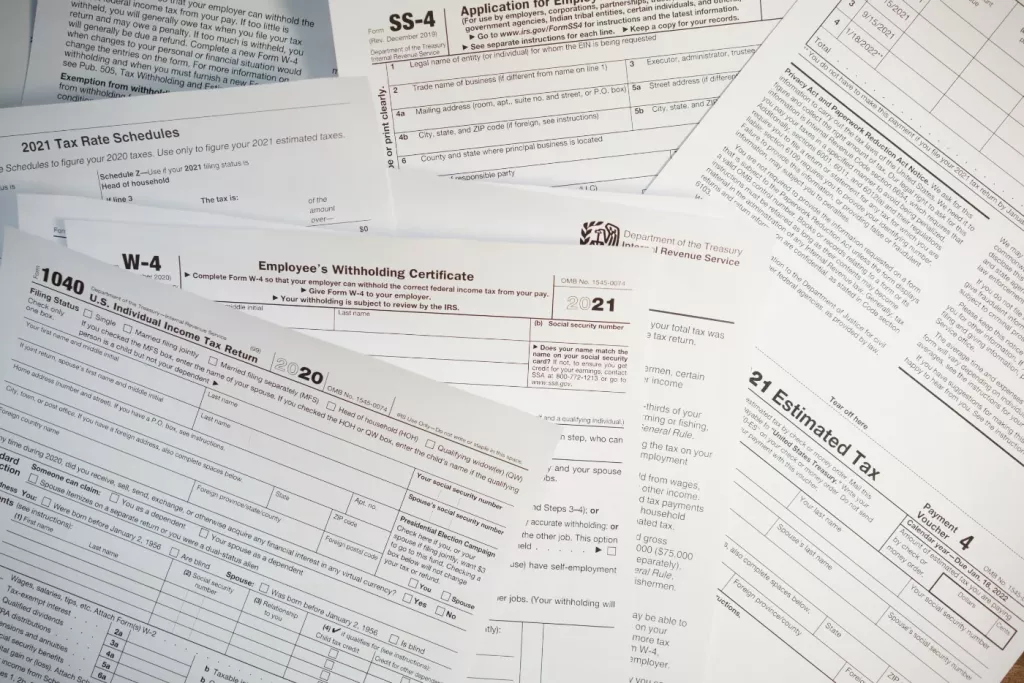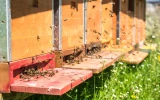Are Bees Considered Livestock for Tax Purposes (USDA & IRS)?
Bees are typically considered wildlife by most people. But did you know that wild bees are increasingly rare? The majority of bees are livestock instead.
Beekeeping is considered a form of farming by the IRS and the federal government classifies honeybees as livestock. This means that for tax purposes, you could qualify for tax benefits and special grants. Bee produce is exempt from B&O taxes because of this classification.
There is, as always, more to it than that - we are talking about tax regulation after all. Below we'll discuss the nitty-gritty.
Summary
- Beekeeping, or "apiculture" as it's called in the business, is a type of farming.
- The federal and state governments have said that beekeeping follows the same rules and pays the same taxes as other farming.

Bees Are Considered Livestock
In an official proposal to the National Organic Program, the National Organic Standards Board said that honeybees are, in fact, livestock.
The USDA asked the Livestock Committee of the National Organic Standards Board to come up with a set of rules for the organic production of honey and honey-related products like pollen, propolis, royal jelly, beeswax, and bee venom.
The American Veterinary Medical Association says,
"The federal government classifies honeybees as livestock or food-producing animals because honey, propolis, pollen, and royal jelly, all of which come from apiculture, are part of the human food chain."
Just like pigs, cows, and other domesticated animals, honeybees are the result of a lot of artificial breeding.
The only time this isn't true is when animals are free to roam outside of fences, where they could bring in new diseases and throw off the balance of the ecosystem.
The IRS Considers Beekeeping To Be a Form of Farming
According to the 2019 edition of IRS Publication 225, The Farmer's Tax Guide,
“a farm includes livestock, dairy, fish, poultry, fruit, fur-bearing animals, truck farms, orchards, plantations, ranches, nurseries, ranges, and feed yards for finishing cattle.”
This group also includes structures like greenhouses that are used to grow plants that people can use.
Publication 225 says that you can write off the cost of fuel used “to raise, shear, feed, care for, train, or manage livestock, bees, poultry, fur-bearing animals, or wildlife.”
If you are a qualified apiarist, you don't have to pay B&O tax on honey bee products that you sell in bulk. This also includes selling honey bees to farmers so they can use them in commercial farming.
If you are a qualified apiarist and your only business is selling honey bee products in bulk, you don't have to register with the Department of Revenue.
B&O tax is charged on retail sales of honey bee products, which are sales to the end customer. Also, honey bee products sold in stores are subject to the trash tax.
Since honey is a food, a Washington State Legislator says that sales of honey for human use don't have to pay sales tax.
If you make and sell other things like candles, soaps, and so on, you are in the manufacturing category and have to pay B&O tax on your income. Also, the B&O tax must be paid on these items when they are sold either wholesale or retail, depending on the type of sale.
A Multiple Activities Tax Credit (MATC) is allowed, so if you live in Washington and make and sell things, you only have to pay tax on one of them. Also, when these things are sold in stores, you must collect retail sales tax.
U.S. States Treat Beekeeping As Farming
Whether it's for the purposes of regulating beekeeping or determining whether or not a piece of land qualifies as farmland for real estate tax reasons, beekeeping is considered agricultural in all 50 states. Each state's tax and agricultural departments are typically responsible for enforcing these regulations.
If you keep bees as a hobby, you might be able to get a better tax deal on your property if you classify it as being used for agricultural purposes. Different states have different legal requirements.
In New York State, for example, there are things like minimum annual gross revenue requirements and certain amounts of time that your land must have been used for agriculture (beekeeping counts). The deadline for registering a property as an agricultural property is set by each county.
We are in the middle of nowhere. Huge farms and ranches where animals are raised can be found all around us. But there are also times when landowners who are not themselves farmers will rent out their land for farming.
There may be other benefits as well, but the main one is that agricultural land doesn't have to pay property taxes.
If you rent your land to beekeepers but are not a beekeeper yourself, you may still be able to get tax breaks for farming. Make sure to talk to an attorney and the right people in your area.
Agriculture Grants
There are times when federal and state agriculture agencies give grants to farmers.
Producers of livestock, honey bees, and farm-raised fish who qualify for ELAP get paid for losses caused by illness, certain types of severe weather, or loss situations like blizzards and wildfires. Losses that aren't covered by other disaster relief programs authorized by the 2014 Farm Bill and the Bipartisan Budget Act of 2018 are eligible for ELAP help. This includes losses that aren't covered by the Livestock Forage Disaster Program (LFP) and the Livestock Indemnity Program (LIP).
In 2014, for example, the USDA announced a $3 million plan to improve the health of pollinators. The goal was to give farmers money and information so they could take better care of bees.
This kind of financial help is often given out on a regular basis. It's a good idea to look online to see if there are any official agriculture portals. As a beekeeper, you might be able to meet the requirements.
Bee Agricultural Products
Bees make honey, which is the best-known agricultural product they make, but they also make a lot of other useful things. Honey has been eaten by people for at least 9,000 years, as shown by evidence. It has also been an important medicine for thousands of years.
We can get more than just honey from the hives. We can get beeswax, royal jelly, pollen, and propolis, among other things.
The most important thing bees do for agriculture is pollinate our food crops, which is worth a lot more than the honey or wax they make.
The Food and Drug Administration says that bees increase the value of crops by $15 billion every year. Honey bees are very important to farming. Even if their honey and other hive products didn't have any value, they would still be thought of as farm animals.

